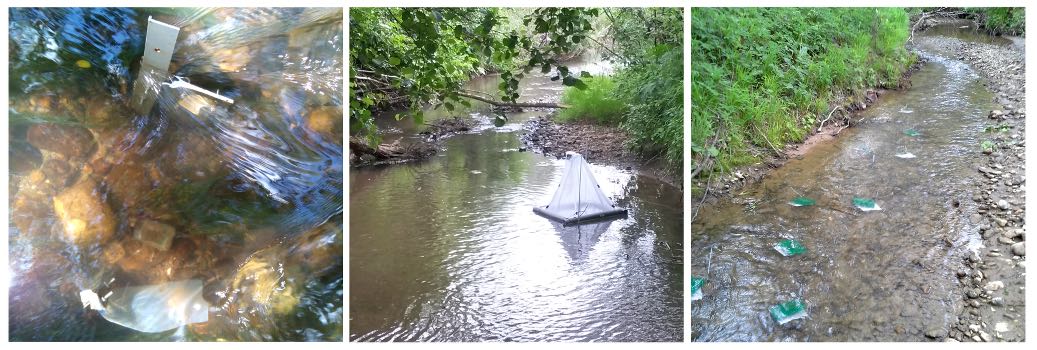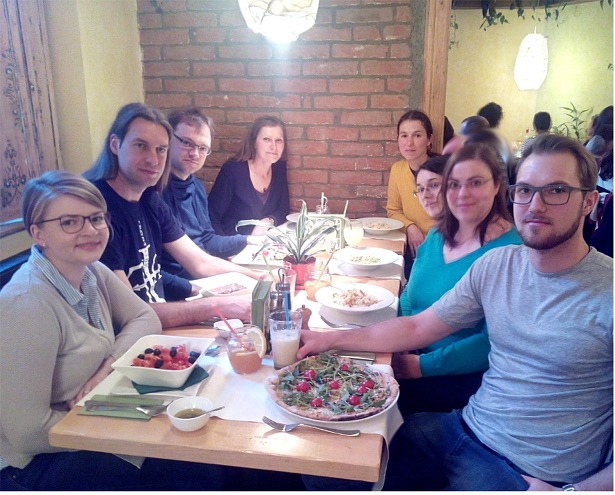This years field season of the Landscape Ecology group is marked by a comprehensive study in Romania.

Effects of agriculture on stream ecosystems are caused by several factors like pesticide use, nutrition and sediment inputs. Disentangling the effects of each of these stressors is almost impossible in Western Europe, because all stressors co-occur in an intensive agricultural landscape. The interpretation of net pesticide effects is further hindered because reference sites of previous studies, which are required to quantify pesticide effects, were located in areas without relevant agricultural land-use.
The agricultural landscape in Romania provides an opportunity to study the individual effect of pesticides, because low-intensity agriculture prevails in rural areas. In these areas, streams receive similar inputs of nutrients and sediments, but with pesticide use is marginal. Thus, our aim is to study a pesticide gradient within the agricultural landscape and the response of aquatic and terrestrial communities.
As we are studying several parts of the stream ecosystem, many people from different institutions are involved:
Verena C. Schreiner with help of Stefan Kunz (both Landau) examines the pesticide load in streams via passive sampling using SDB disks and silicon rubber bands (left figure) and edge-of-field-sampling. Nadin Graf (Landau) studies food niches of spiders living adjacent to streams using traits and stable isotopes (mid figure). Sophia Schmidt and Sebastian Marx (both Landau) are studying the terrestrial invertebrates, Dr. Karina Battes and Dr. Mirela Cimpean (both from University Babeș-Bolyai in Cluj) process aquatic invertebrates. Jochen Zubrod and Dr. Mirco Bundschuh (both Landau) study effects on leaf decomposition (right figure). Dr. Mirna Velki (RWTH Aachen) studies biomarkers in invertebrates. Dr. Daniel Grabner (University of Duisburg-Essen) investigates parasites on aquatic invertebrates. Jun.-Prof. Dr. Ralf Schäfer and Dr. Jörn Buse (both Landau) conceived the study and selected the sampling sites. Eduard Szöcs (Landau) helps with local communication, organization and field work.

The field study is currently ongoing and we hopefully will report first results at the end of the year.
